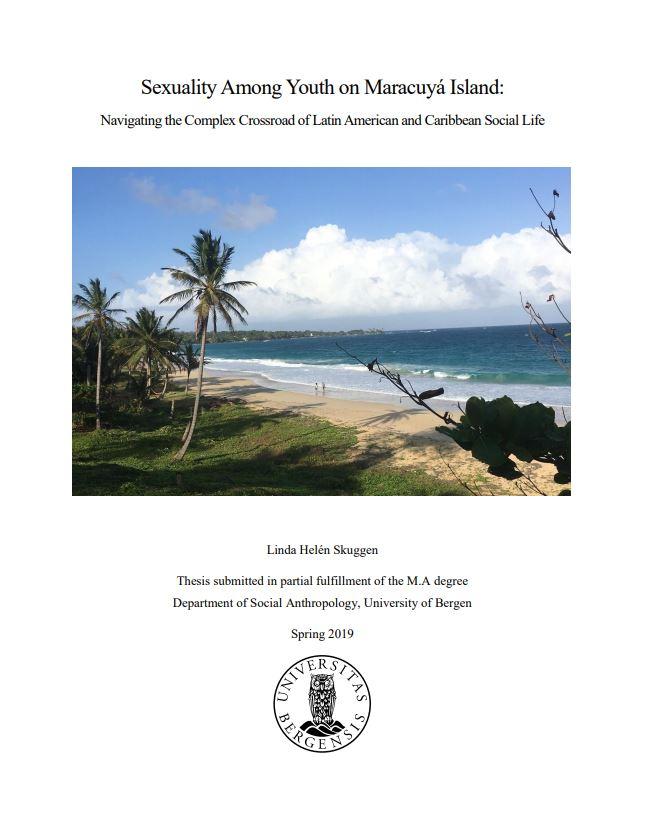Sexuality Among Youth on Maracuyá Island: Navigating the Complex Crossroad of Latin American and Caribbean Social Life
Hovedinnhold
Master's thesis submitted at Department of Social Anthropology, spring 2019.
By: Linda Skuggen
Supervisor: Professor Annelin Eriksen
Based on fieldwork on a small, Nicaraguan-Caribbean island, this thesis explores how teenagers and young adults are approaching notions of sexuality simultaneously as they are navigating within a complex crossroad of Latin American and Caribbean values, social norms, religions, politics, and history. Drawing on the “Crab antics school of anthropology”, I seek to explore and challenge the notion that Caribbean social life is built on a dialectical relationship between the two gendered and opposing value systems of respectability and reputation. In short, the value of reputation demands men to be sexually active and father many children, while respectability demands women to practice chastity until legal marriage. Ethnography from Maracuyá Island shows that although men follow the moral codes that the principle of reputation provides, women are, in certain contexts, expressing a behavior that contradicts the value of respectability. It is not uncommon for young women to openly display their sexuality, often in forms of wining (sensual dancing) or flirting, or to have multiple boyfriends simultaneously. Adopting a Dumontian value-hierarchy framework, I show young women are able to do so without risking their respectability. Further, I seek to add new dimensions to the understanding of reputation and discuss it in relation to the Latin American male value of machismo. This thesis also deals with the seemingly changing notions of fatherhood on Maracuyá Island. Traditionally, the most important aspect of fatherhood in the Caribbean has been to “mind the children” – to protect and provide for them. Today, however, the Christian and Western image of the father as married, homebound and caring is enforced by both the Nicaraguan government, the church and the media as an appreciated value. With this thesis, I seek to contribute to discussions of social change within a structural analytical framework.
